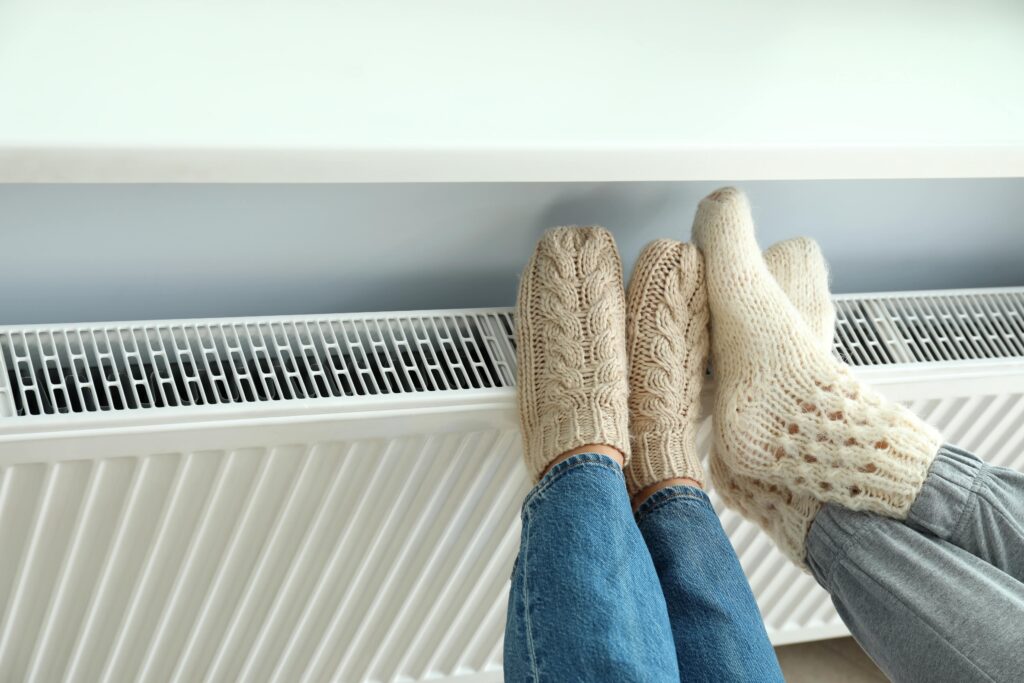
Choosing the best heating system for your home isn’t always straightforward. The right choice depends on factors like energy efficiency, installation cost, home layout, and personal comfort preferences. At Central Cooling & Heating, we’ve spent years helping homeowners find the best heating solutions for their unique needs.
Our team has installed and serviced thousands of baseboard heating systems and ductless heat pumps across the region. We understand the real-world performance of these systems—not just what the manufacturers claim. Whether you’re upgrading your heating system or installing one for the first time, our certified HVAC professionals can guide you through the decision-making process with expert, unbiased advice.
In this guide, we’ll break down the pros and cons of each system, helping you understand the costs, efficiency, and long-term benefits of both options. By the end, you’ll have a clear idea of which system is best for your home.
Key Summary
- Baseboard Heating:
- Pros: Easy installation, low upfront cost.
- Cons: Higher energy consumption, slower heating, limited temperature control.
- Ductless Heating Systems (Heat Pumps):
- Pros: Energy-efficient, provides both heating and cooling, precise temperature control.
- Cons: Higher initial cost, requires regular maintenance.
Baseboard Heating: An Overview

Baseboard heating is a popular option, offering reliable warmth without the need for ductwork. There are two main types of baseboard heaters: electric and hot water (hydronic) systems.
Baseboard heating is a popular option, offering reliable warmth without the need for ductwork. There are two main types of baseboard heaters: electric and hot water (hydronic) systems.
Electric Baseboard Heaters
Electric baseboard heaters are the most common type. These systems use electric resistance coils to generate heat, which is then radiated into the room. Each unit operates independently with its own thermostat, allowing for zoned temperature control.
Pros:
- Simple installation with no ductwork required
- Low upfront cost
- Individual room control for customized heating
Cons:
- Higher energy consumption compared to other heating systems
- Slower heat distribution
- Can lead to higher electricity bills in colder climates
Hot Water Baseboard Heaters (Hydronic Systems)
Hydronic baseboard heaters use a centralized boiler to heat water, which then circulates through pipes to baseboard radiators. These systems deliver consistent, radiant heat and retain warmth longer than electric baseboard heaters. While they take longer to warm up initially, they operate more efficiently over time. Depending on the system, hydronic baseboard heaters can be powered by natural gas, propane, oil, or electricity.
Pros:
- More energy-efficient than electric baseboard heaters
- Provides steady, long-lasting heat
- Lower operating costs when paired with an efficient boiler system
Cons:
- Higher installation cost
- Requires a boiler and additional piping
- Slower heat-up time compared to forced-air systems
Ductless Heating Systems: An Overview
Ductless heating systems, also known as mini-split heat pumps, consist of an outdoor unit connected to one or more indoor units. They transfer heat rather than generate it, making them more energy-efficient. Additionally, these systems can provide both heating and cooling, offering year-round comfort.
Pros of Ductless Heating Systems:
- Energy Efficiency: Heat pumps can deliver up to three times more heat energy than the electrical energy they consume, resulting in lower utility bills.
- Dual Functionality: They offer both heating and cooling capabilities, eliminating the need for separate systems.
- Precise Temperature Control: Ductless systems allow for individual room temperature settings, enhancing comfort and reducing energy waste.
Cons of Ductless Heating Systems:
- Higher Initial Cost: The upfront cost for ductless systems is higher than baseboard heaters, but the energy savings can offset this over time.
- Regular Maintenance Required: To maintain efficiency and longevity, ductless systems require periodic professional maintenance and filter cleaning.
Making the Right Choice for Your Home
When deciding between baseboard heating and ductless heating systems, consider the following factors:
- Energy Efficiency: If long-term energy savings are a priority, ductless systems are more efficient.
- Initial Budget: For a lower upfront cost, baseboard heaters may be more suitable.
- Home Layout: Ductless systems offer flexibility in installation and can be ideal for homes without existing ductwork.
- Climate: In regions with extreme temperatures, ductless systems provide more consistent comfort.
For personalized advice on the best heating solution for your home, contact Central Cooling & Heating today.
Frequently Asked Questions
How do baseboard heaters work?
Baseboard heaters work by using either electric resistance heating or hot water (hydronic) circulation to warm a room.
What is a ductless heating system?
A ductless heating system, or mini-split heat pump, consists of an outdoor unit connected to indoor units. It transfers heat from the outside air into your home during winter and reverses the process in summer to provide cooling.
Are ductless systems more energy-efficient than baseboard heaters?
Yes, ductless systems are generally more energy-efficient. They can provide up to three times more heat energy than the electrical energy they consume, leading to lower energy bills.
Which system has a higher upfront cost?
Ductless heating systems typically have a higher initial cost compared to baseboard heaters. However, the increased energy efficiency can result in cost savings over time.
Do ductless systems require regular maintenance?
Yes, to ensure optimal performance and longevity, ductless systems require regular maintenance, including professional inspections and filter cleaning.
